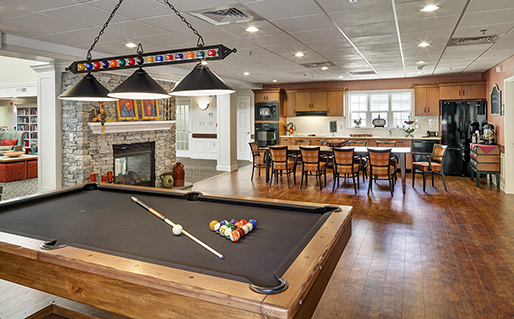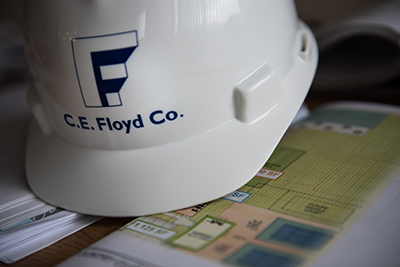- Who We Are
-
Our Work
- Educational
- Senior Living
- Hospitality
-
Healthcare
- Partners Urgent Care
- Yale New Haven Health- Medical Office Building
- The Hospital of Central Connecticut - Advanced Wound and Hyperbaric Medicine Center
- Connecticut Children's - Infusion Center and Gastrointestinal Clinic
- Connecticut Children's - Specialty Care Center
- MidState Medical Center- Post-Anesthesia Care Unit Expansion & Renovation
- Commercial
- Specialty Work
- How We Do It
- Our Blog
- Industry Tidbits
- Join Our Family
- Contact Us
The Power of Preconstruction: Building the Foundation for Project Success
June 2nd, 2023
Preconstruction plays a vital role in the success of any construction project. If you skip this phase, once the project is bid and ready to start construction, you’ve missed your chance to get the most value from your project. By focusing on preconstruction, the project team can proactively assess the project, leading to greater efficiency and favorable results for the client.
What is Preconstruction?
The Preconstruction phase creates the foundation for a successful project. It fosters positive collaboration among the project team and enables all parties to gain a comprehensive understanding of the project and the client’s goals. This phase involves critical activities such as developing the project budget, creating the project schedule, planning logistics and phasing, and finalizing project design documents through collective input from the team.
Why is Preconstruction important?
Once the project moves into the construction phase, it becomes too late to adequately prepare for success. Changes in scope at that point can significantly impact the project’s timeline and budget. The preconstruction approach ensures all relevant parties, including architects, engineers, contractors, and owners are aligned, minimizing the chances of delays and miscommunication during construction. Through careful planning and coordination during preconstruction, team members can fully grasp their roles and meet the client’s expectations. This phase is vital for creating a team-oriented atmosphere before construction begins.
The preconstruction phase also plays a critical role in developing a robust design and reliable budgeting. Gathering feedback from trade partners on design, materials, and cost early on reduces the need for redesign work and enhances the overall construction process.
Preconstruction phase deliverables
Scope – The “why”
 At the beginning of the preconstruction phase, understanding the “why” behind the project is crucial. This involves documenting the project’s scope, which makes each project unique and personally meaningful. We look to understand how the building or space will be used, what design features of the current space can be optimized for the client, and how sustainability can be implemented into the design. Through this process, we really start to understand the client’s vision for their project. During the scope phase, the project team collaborates to help the client understand potential risks, design specifications, site plans, timelines, and equipment options.
At the beginning of the preconstruction phase, understanding the “why” behind the project is crucial. This involves documenting the project’s scope, which makes each project unique and personally meaningful. We look to understand how the building or space will be used, what design features of the current space can be optimized for the client, and how sustainability can be implemented into the design. Through this process, we really start to understand the client’s vision for their project. During the scope phase, the project team collaborates to help the client understand potential risks, design specifications, site plans, timelines, and equipment options.
Budget
As the design progresses, the preconstruction team focuses on developing a project budget based on initial input. We consistently update the budget as more design details emerge, instilling confidence in the final budget among the owner and project team.
A helpful analogy is comparing the budgeting process to an airplane flight from takeoff to landing. The rise from the ground to cruising altitude is the conceptual and schematic estimates where all the parts of the building are being added to the budget. When the plane reaches cruising altitude, we’re in the design development and construction document phases. There may still be some shifts in the design and budget, but the goal is to stay on budget using trade partner feedback and our own cost history data. As the plane approaches its destination, it starts to descend. This is the construction phase, where the team slowly releases uncommitted costs and contingencies back to the Owner until the project is complete.
This may seem like common sense, however without strong oversight, construction budgets can fluctuate greatly with Owners discovering they need to raise more funding to build their intended design as a result of poor budget control. C.E. Floyd’s preconstruction and estimating approach and expertise eliminate that risk and exposure.
Details
“The devil is in the details.” The details can cost a client a lot of money, plus they can also be the reason for many RFI questions, scope misunderstandings, design intent unknowns, and mismanaged methods of construction. C.E. Floyd’s preconstruction services employ a systematic approach to constructability reviews and provide valuable input on design documents. Our team, having previously worked as project managers and alongside architects, knows the right questions to ask and manages project sequencing to maximize the best details for a project. We also have strategic alliances with envelope consultants who assist with complex detailing to ensure we address and capture those details within the trade partners’ scopes of work and budgets.
Schedule
 Design and scheduling are essential aspects of the preconstruction phase. The team can map out design team schedules to ensure the timely readiness of documents for loan submissions, tax credit applications, intended construction start dates, and more. Construction scheduling is critical for budgeting and timeline development to ensure the client’s vision is executed as desired. This timeline has a direct impact on the project budget for General Conditions purposes and helps to strengthen the project’s budget. Phased construction scheduling is important for product lead time development and providing a thorough understanding of a phased project to the end user.
Design and scheduling are essential aspects of the preconstruction phase. The team can map out design team schedules to ensure the timely readiness of documents for loan submissions, tax credit applications, intended construction start dates, and more. Construction scheduling is critical for budgeting and timeline development to ensure the client’s vision is executed as desired. This timeline has a direct impact on the project budget for General Conditions purposes and helps to strengthen the project’s budget. Phased construction scheduling is important for product lead time development and providing a thorough understanding of a phased project to the end user.
Materials
Proper planning for long lead time materials is another key to project success. During preconstruction, C.E. Floyd identifies all necessary materials and equipment, paying special attention to items requiring early ordering. The procurement schedule is integrated into the overall construction schedule to maximize efficiency, ensure timely delivery, and facilitate proper phasing and staging of materials.
During preconstruction for The Food Bank of Western MA, we were able to inform the client that there was an 11-month lead time for steel bar joists, which would significantly impact their project schedule. Because we were early enough in the design phase, the project team was able to redesign the structure of the building to use steel beams and columns rather than bar joists.
Communication
The preconstruction phase lays the foundation for a successful construction project, and it relies heavily on effective communication. Having a designated “champion” from each member of the project team, who thoroughly understands the client’s goals and the purpose of the project, proves to be an invaluable asset. This ensures alignment among the owner, consultants, and other stakeholders when starting a new project.
While there’s nothing more exciting than the ribbon-cutting, we know our team typically adds the most value in the preconstruction process. Learn more about working with C.E. Floyd during preconstruction.










